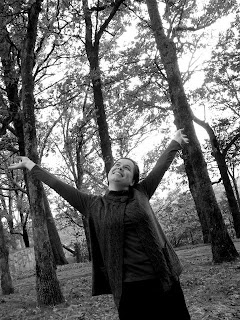 We’ve all been there. Whether teaching a Sunday school class, leading the Wednesday night praise team, or writing the Friday morning Word blog (to make it personal), it’s easy to let the routine of the task turn it into just that—a task. As creatures of habit, routine yields familiarity, and familiarity yields lack of appreciation yielding lack of passion yielding lack of creativity. Or so I believe.
We’ve all been there. Whether teaching a Sunday school class, leading the Wednesday night praise team, or writing the Friday morning Word blog (to make it personal), it’s easy to let the routine of the task turn it into just that—a task. As creatures of habit, routine yields familiarity, and familiarity yields lack of appreciation yielding lack of passion yielding lack of creativity. Or so I believe.Getting out of the Rut
I would love to add the clause “and Staying out” to that heading, but the truth is I don’t think there’s ever one magic thing we can do to permanently cure this condition. I think it’s about monitoring our callings, recognizing fatigue or flatness, and learning to do new things frequently to re-inspire ourselves. (I believe inspiration can sometimes blindside us beautifully and unexpectedly, but that we often have to go looking for it and work to inspire ourselves.)
A Word about Writer’s Block
It’s hard to talk about our topic without acknowledging writer’s block. This is Leeann 101, but I think we overhype that and make it a scary, mystical thing, “giving the devil to much credit” as it were. There is no mystery to it. If you can’t write, it’s either psychological (fear of rejection/vulnerability), procrastination/lack of discipline, or lack of inspiration. We can resolve all of those things, and for the inspiration issue, here’s my offering:
What Works for Me

“Living gives you a better understanding of life. I would hope that my characters have become deeper and more rounded personalities. Wider travels have given me considerably greater insight into how cultural differences affect not only people, but politics and art.” –Alan Dean Foster
“Write to be understood, speak to be heard, read to grow...” –Lawrence Clark PowellWhat about You?
Anything you do to get out of a rut and re-energize your mind?



